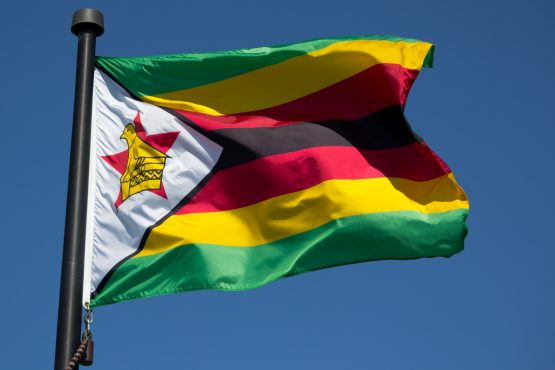Source: US relaxes sanctions on Zimbabwe after 21 years – Moneyweb

In a surprise move on Monday, the US announced that it would terminate sanctions against Zimbabwe, ending a 21-year campaign introduced under the presidency of the late Robert Mugabe as punishment for corruption and human rights abuses.
The partial lifting of sanctions is not because of any improvement in corruption or human rights abuses but because of a change in strategy where the US intends to target the individuals and entities it deems responsible for these abuses.
Among those targeted by the US are Zimbabwean President Emmerson Mnangagwa and Vice-President Constantino Chiwenga “for their involvement in corruption or serious human rights abuse”.
Also targeted are retired brigadier-general Walter Tapfumaneyi and Kudakwashe Tagwirei, one of Zimbabwe’s wealthiest businessmen. They are among the 11 individuals and three entities targeted by the US.
New tools
The US government says it is employing new tools in Zimbabwe, including the Global Magnitsky sanctions programme, “to make clear that the egregious behaviour of some of the most powerful people and companies in Zimbabwe matches the actions of the worst human rights abusers and corrupt actors globally”.
“In response to new and continuing corruption and serious human rights abuse, the United States is refocusing and elevating its efforts to hold accountable the individuals and entities that are responsible for this exploitation,” writes US National Security Council spokesperson Adrienne Watson.
“Specifically, the Department of the Treasury is designating three entities and eleven individuals, including President Emmerson Mnangagwa, Vice President Constantino Chiwenga, Brigadier General (Retired) Walter Tapfumaneyi, and businessman Kudakwashe Tagwirei, pursuant to Executive Order 13818, which builds upon and implements the Global Magnitsky Human Rights Accountability Act, for their involvement in corruption or serious human rights abuse.”
The Global Magnitsky Human Rights Accountability Act, named after Russian whistleblower Sergei Magnitsky, who died in custody in 2012, can be applied worldwide by the US and allows for targeted sanctions against individuals and entities deemed responsible for human rights abuses and corruption.
The new targeting programme forms part of a package of measures aimed at those deemed to be the worst offenders.
The US recently paused its participation in the African Development Bank Dialogue and made greater use of a new visa restriction policy against those perceived to be undermining democracy in Zimbabwe.
“These steps are concurrent with the termination of the preexisting Zimbabwe sanctions programme that began in March 2003 and [were] expanded on in subsequent orders,” adds Watson.
Court case against US sanctions
In March 2022, the Zimbabwe Anti-Sanctions Movement (ZASM) filed papers in the Gauteng High Court asking it to declare US sanctions against Zimbabwe unlawful, unconstitutional and invalid.
The court action cited US President Joe Biden and the president of the US Senate among the respondents, as well as several SA and US banking groups.
One of the anticipated outcomes of lifting sanctions is the ability to normalise financial relations with Zimbabwe, though this will likely be a slow process.
This week’s lifting of three executive orders – which were originally signed by former US president George W Bush and enforced by the Office of Foreign Assets Control – applies primarily to financial relations between Zimbabwe and the US.
The ZASM court case, which was defended by the US government, argued that sanctions hurt ordinary Zimbabweans by denying the country access to international credit markets and by cutting off international aid and donor assistance. South African and global banks were reluctant to transact with Zimbabwe, fearing being slapped with criminal and civil penalties.
Lifting of sanctions welcomed
ZASM’s legal counsel, Advocate Simba Chitando, welcomed the lifting of sanctions, which were inconsistent with the United Nations Charter, the African Union Constitutive Act and the SA and Zimbabwean constitutions.
“None of the individuals and entities targeted by the United States Sanctions Program received a fair trial in a competent tribunal, but all were summarily punished by the most powerful country in the world.”
Watson accused political leaders of corruption – allegations that fall within the jurisdiction of law enforcement and should be tested in the courts, says ZASM.
The targeted sanctions against individuals without due process had the effect of subverting the very justice system the US seeks to support.
Chitando says the ZASM may persist with its case against the US government but amend that part of its plea seeking the removal of sanctions against the people of Zimbabwe, as this has now been achieved.
It will proceed with its legal challenge against the Zimbabwe Democracy and Recovery Act (Zidera), which was introduced in the US in 2001 with the purpose of restoring order in the country after state-sanctioned land invasions and human rights abuses.
COMMENTS